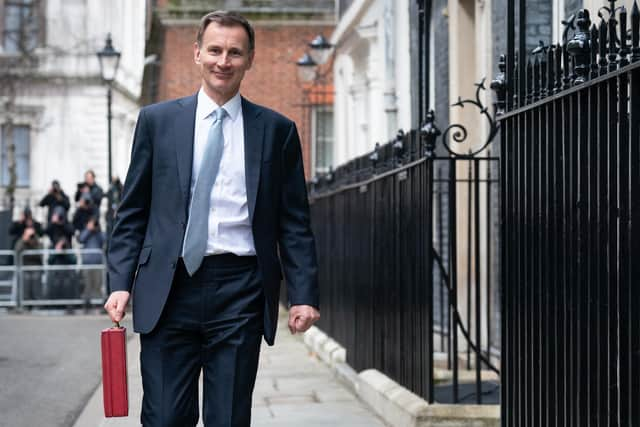This was a pre-election budget of a government that has run its course
The Chancellor cut personal taxes to their lowest level in almost 50 years with Jeremy Hunt confirming a 2p cut in national insurance for employees. The reduction in national insurance could save the average worker £450 a year, adding up to a £900 saving for 27 million employees when combined with a cut last autumn.
There are many households that have seen their budgets squeezed who will welcome the move. But the question is, what is the trade off?
Advertisement
Hide AdAdvertisement
Hide AdThe budget, which is most likely the Conservatives last roll of the dice, showed little support for local authorities. It’s no longer sufficient to just ask for great efficiency from councils when so many have fallen into trouble.


Councils of all shapes and political stripes, up and down the country, find themselves on the brink. This will only mean poorer services for communities.
The Chancellor plans to keep growth in day-to-day public spending at 1 per cent in real terms but that will mean public services have to be cut.
Voters want to see an improvement in their lives, not just through tax cuts but better infrastructure and public services in the communities that they live in.
Advertisement
Hide AdAdvertisement
Hide AdThere was also little mention of social care in the budget. Without investment in social care the funding for the NHS will once again be undermined.
If the plan was to deliver a radical budget that convinces voters to stick with the Tories, the Chancellor tinkered around the edges. Understandable to some extent, given the situation Mr Hunt inherited, but after 14 years of successive Tory governments there is a sense that many voters now want change.
Comment Guidelines
National World encourages reader discussion on our stories. User feedback, insights and back-and-forth exchanges add a rich layer of context to reporting. Please review our Community Guidelines before commenting.
